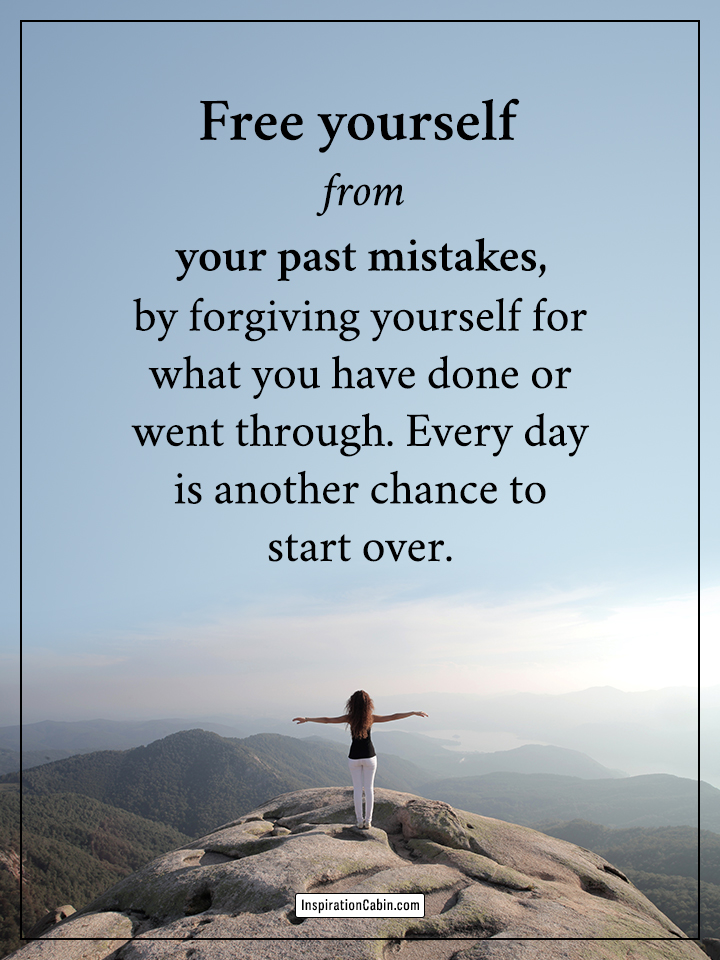
When you accept yourself as you already are, you will be happy and content in your own skin. It also makes you less needy for other people’s approval. People who accept themselves unconditionally tend to feel a sense of freedom, and become more independent.
Self-acceptance is the act to accept both your strengths and your weaknesses without judgment. It allows you to believe that you are worthy of unconditional love, and acceptance just as you are. This means knowing that no one is perfect and accepting any flaws you might have.
Like all skills, self-acceptance requires consistent practice and effort over time, but the end result is so worth it. Here are 8 ways to accept yourself as you are.
1. Focus on your strengths
Although everyone has strengths, few have taken the time to identify what they are good at. It is important to find your strengths. People who recognize their strengths have a better grasp of what makes them unique which boosts their self-esteem. When you find your strengths, you will be grateful for it, and you will have a positive view of yourself.
Start by making a list of all your strengths, achievements, successes, and what you are good at. Be honest and include everything you’re proud of, no matter how small. Another great way to find out your strengths is to ask people who know you well, what they think you’re best at.
2. Practice positive self-talk
Self-talk is the way you talk to yourself, in other words, your inner dialogue. It can be either positive or negative, depending on how you focus your words. Positive self-talk makes you feel good about yourself, and can help you to reframe the way you look at stressful situations.
Become your own source of encouragement by noticing negative self-talk, and turning it around before it takes hold. Keep in mind that replacing your negative thoughts with positive ones takes time and energy. Sometimes, placing positive affirmations and mantras around your home and workplace can be enough to redirect your thoughts.
3. Accept what you can’t change
Life doesn’t go as we expect, sometimes you end up in situations that you just can’t change. The best approach to dealing with things that can’t be changed is to accept them.
Accepting that many things are out of your control, maybe one of the most difficult aspects of life, because it means to let go of your expectations of how things should be.
Refusing to accept things you can’t change is a waste of time and energy. So don’t think too much and let things flow with time. No one can change the past. What happened in your past happened, and you can’t travel back in time, so learn how to accept your past and move forward.
4. Create a support system
Building strong, positive relationships with people you trust can provide you with needed support and acceptance in good and bad times. Surround yourself with people who truly like you for who you are and fuel your fire and your desire to be a better you. They may be your family members, or good friends, who can provide emotional support in times of need. These people will provide constructive criticism without being rude or hurting your feelings because they want to see you succeed.
Even just speaking about your feelings out loud to the people close to you can make a big difference. Remember, asking for help is not a sign of weakness; it’s a sign of humanness.

5. Accept your imperfections
When you are constantly striving for perfection, you put a lot of pressure on yourself. This can make you feel anxious and depressed, especially if you constantly criticize yourself for not meeting the high standards you set for yourself. So don’t beat yourself up if you’re not perfect. Nobody in this world is perfect, and everyone makes mistakes. It’s part of being human.
6. Stop comparing yourself to others
Allowing yourself to fall into the comparison game is a trap that leads to negative thoughts and low self-esteem. The problem with comparisons is that they are rarely accurate. Most of the time, you compare the worst you know of yourself to the best you presume about others. You see all the successes but none of the failures.
The effects of comparing yourself to others can also make it challenging to see the good things you already have. Furthermore, those who have lower self-esteem can feel worse when they compare themselves to others, experiencing negative feelings of envy, and low self-confidence. Once you free yourself from the weight of comparison, your thoughts will shift and you will feel significantly more confident in yourself, and more assured about and your abilities.
7. Be kind to yourself
Practicing self-kindness simply means treating yourself the same way you treat your loved ones. People who are kind to themselves are more gentle and loving toward themselves when faced with difficulties, pain or failure.
Try to give yourself the tenderness and care you need especially when you feel inadequate, insecure or when you are in emotional, or physical pain. That opens the door for you to grow from the experience.
Being kind to yourself includes taking care of your body. Regular exercise can help reduce stress while boosting self-esteem and happiness.
8. Forgive yourself
The first step to forgive yourself is to take responsibility for your actions. When you recognize your mistakes, you free yourself from negative emotions, such as excessive regret and guilt. Then, you may shift your focus to making amends even when the person you are forgiving is yourself.
It’s important to avoid the urge to shift blame, and to instead accept responsibility for your actions. Try to see them as opportunities for learning and growth. Take comfort in the thought that you did the best you could with what you knew at the time.
Letting go and offering yourself forgiveness can help release negative feelings, and improve your image of yourself. Remember that your mistakes don’t define you or make you a bad person, especially when you use them as a learning opportunity.
